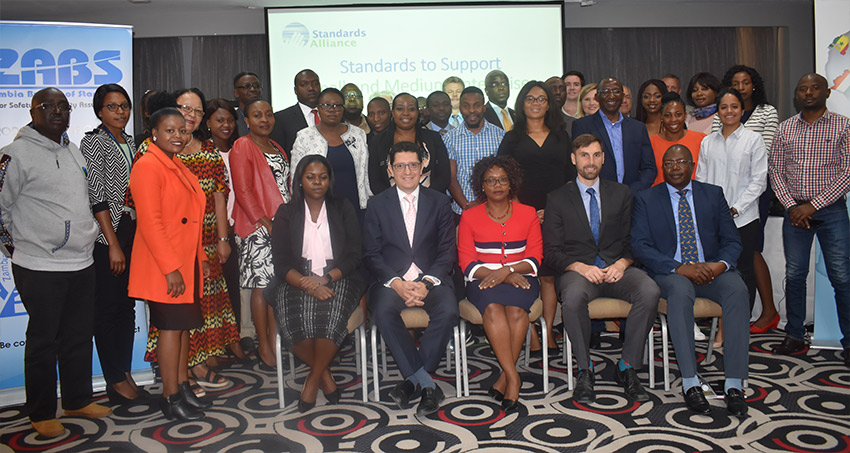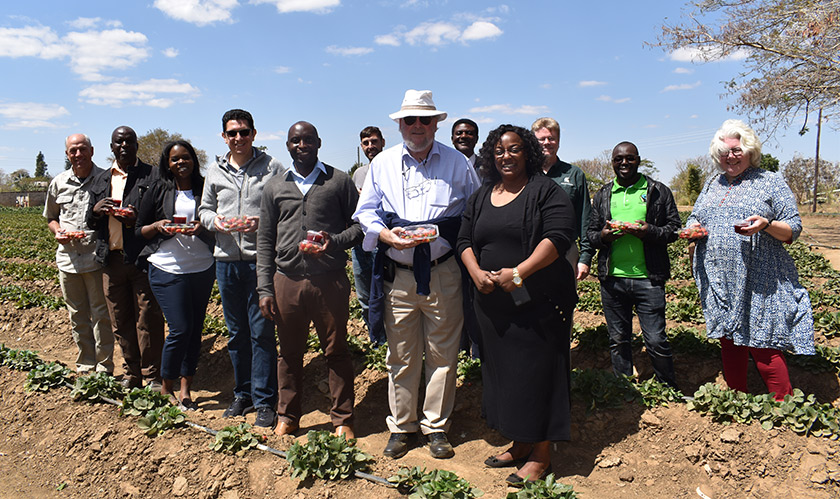Standards Alliance Workshop on Standards to Support SMEs in Zambia
On August 21-22, 2019, the Standards Alliance, in conjunction with the Zambian Bureau of Standards (ZABS), conducted a two-day workshop on Standards to Support Small and
Medium-sized Enterprises (SMEs) in Lusaka, Zambia. The workshop provided local agricultural SMEs guidance and technical training on pertinent international export standards and compliance requirements, which support unparalleled access to the U.S.
market under the African Growth and Opportunity Act (AGOA).
Various experts from the Joint Institute for Food Safety and Applied Nutrition (JIFSAN), Fairtrade International,
the Zambia Ministry of Commerce, Trade and Industry, and USAID Southern African Trade and Investment Hub (SATIH), amongst others, presented on how SMEs
should prepare, label, package and transport their products in order to successfully export regionally and to the United States. The first day of the workshop, which attracted 30 participants, had a range of attendees from export
ready SMEs and farmers to producers with products in the inchoate phases of the export process. The session provided an overview of the support services provided by the SATIH and detailed background on the necessary AGOA, export
procedures, and steps required for export ready SMEs to enter the U.S. Market. The training also elaborated on important agricultural and food manufacturing standards, including organic and Fairtrade standards.
Thirty-four professionals from more advanced SMEs attended the second day training that concentrated on certifications, such as FISMA, and further delineated additional requirements including scientific, regulatory, management, and
business considerations regarding the U.S. market. The final presentation on day 2 provided a model for developing and operating a sustainable value chain specific to Zambian SME farmers. The aim was to get SMEs thinking about the
whole production value chain (farm to folk) and how international standards may be able add more value to their produce beyond increased export potential. Following the workshop, several of the expert speakers and workshop participants
visited a large food processing facility and a strawberry farm to see how the industry in Zambia operates from the different viewpoints.
As part of the USAID - ANSI public-private partnership, this successful workshop built on the Standards Alliance mission of providing capacity building to developing
nations, so they can eliminate trade barriers and facilitate trade with the U.S. In a post-workshop survey, participants expressed that the session was educational, practical, and hosted great speakers. Moreover, the workshop sparked interest, and
many SME attendees said that they would like the chance to continue training on this subject.
Materials
Photos




